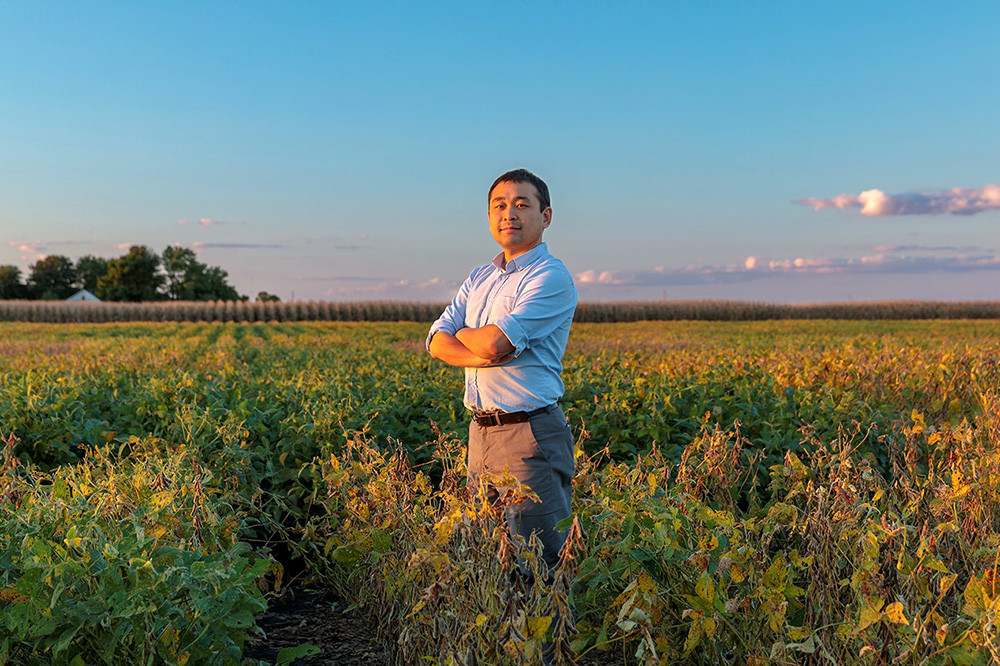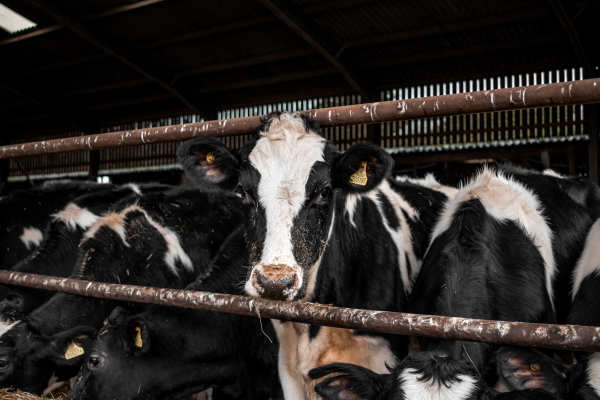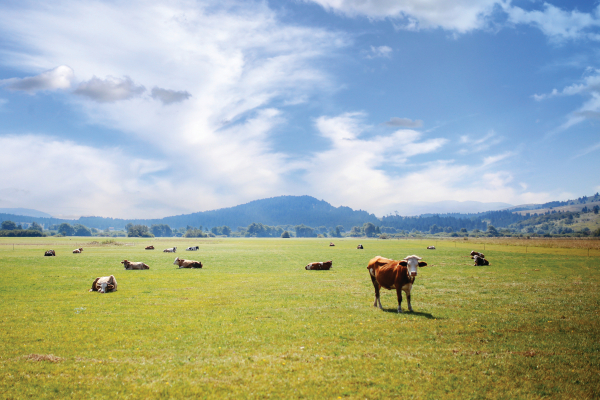Reinforcing Resilience: Leveraging super computers to predict crop yields and water requirements

PROBLEM
- Global climate change is projected to impact crop productivity, but it’s not clear how changes in temperature will affect plants.
SOLUTION
- By better understanding the impacts of temperature changes on crops, scientists can help inform breeders as they select more resilient traits.
Dr. Guan and his team use computer modeling to determine how increasing temperatures impact soybean growth and crop production. This enables them to more accurately predict the future impacts of a changing climate on agricultural production and identify promising targets for adaptation.
Dr. Guan leads a project that analyzes how temperature affects major plant processes such as photosynthesis and respiration in soybeans. The team is combining the temperature free-air controlled enhancement (T-FACE) experiment through University of Illinois’ SoyFACE facility and a newly developed crop-modeling framework.
One typical class of crop models is agronomy-based, which involves various soil and crop management techniques. Another involves climate models that predict reactions to temperature and other weather variables. They are developed for different purposes and applied at different scales. When used together, they create a new model with improved predictive power. The team’s goal is to combine the two approaches into a single tool that can better evaluate soybean varieties.
To test the new model, infrared heating arrays produce heat stress on three soybean varieties, representing the major groups planted across the Midwest, for two growing seasons. Multiple physiological and biochemical measurements are taken simultaneously. This data is merged into the new computer simulation to model plant reactions to higher temperatures.
The team will apply the new model in test fields to predict the impacts of various climate scenarios on farms in the Corn Belt. These results will help crop breeders select traits to make future crops more efficient and resilient in the face of rising global temperatures.
I have a dream that moving forward, we will be able to monitor every field on this planet. We will know crop conditions, yields, and most importantly how much water and fertilizer the crops require. Our research is progressing in that direction.”
– Kaiyu Guan
RESEARCHERS
- Kaiyu Guan, PhD, University of Illinois
- Carl Bernacchi, PhD, University of Illinois
- Elizabeth Ainsworth, PhD, University of Illinois
- Bin Peng, University of Illinois
FUNDING
- USDA NIFA AFRI
- NASA New Investigator Award


